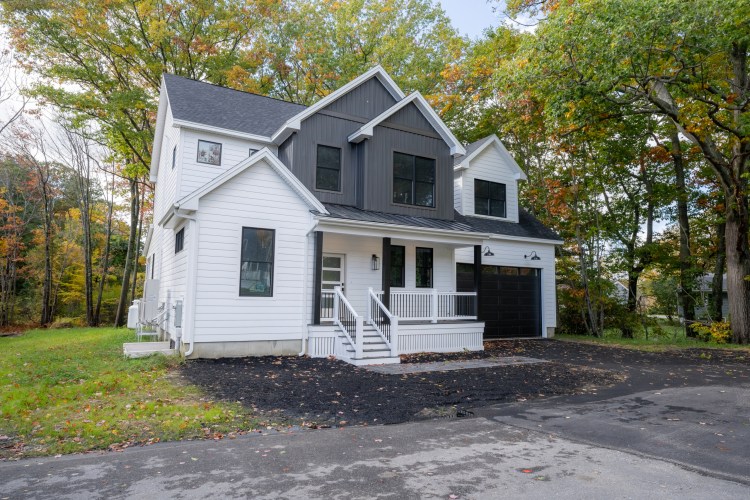My work as a real estate broker gives me a personal relationship to the housing market and let me tell you what I’m seeing: During the pandemic, buyers and sellers came out of the woodwork, making a lifestyle change, to take advantage of low interest rates, more flexible work arrangements, and high buyer demand. With interest rates increasing, we won’t see people so fast to make the housing jump. More and more people may decide to reinvest in their home to make it work for them, enjoying that lower interest rate they already have, rather than becoming a buyer again.
One of the ways I’m seeing more and more people use that reinvestment budget is on sustainable energy upgrades. These investments are beginning to have the same cachet and resale value as granite countertops, or a second floor laundry room. For instance, I recently represented the buyers for a newly built home in Cape Elizabeth. It’s a luxury home in the traditional sense, but the sole source of heating is from heat pumps. I’ve now been in a few situations where my buying clients are comparing their favorite properties and they start to feel more competitive about making an offer when one has heat pumps or solar panels.
This moment—economically and socially—has inspired my wife and I to make those investments in our own home. When our second-floor renovation is complete, we’ll have a total of five heat pumps, plus rooftop solar panels and a new car charging station in the garage for our electric vehicle. There’s value added for the hardware, but also for the sense of long-term sustainability.
People often want to know when these sustainability projects will pay for themselves. I’ve got to be honest, in my case, “will I ever make my money back?” is not a question I’m stuck on. These investments are about convenience, comfort, and lifestyle for me and my family, although eventual savings are of course a nice bonus. According to some studies, I will earn my investment back in 8 to 12 years, but these investments are important to the present as well as the distant future.
There’s the simple luxury of comfort and consistency. It will feel luxurious not to have the price of heating oil control the thermostat this winter. It also feels luxurious to have hope for the future, that these big-ticket items make a positive impact for myself, my family, our community, and the world.
Top energy efficient home improvement projects and potential rebates
Electric vehicle
We recently bought a Tesla because hey, I live and work in my car and need to be comfortable, but an EV purchase also reduces the carbon costs of mining, refining, and burning fossil fuels.
Efficiency Maine rebate: $1,000 to $7,500 (income-based)
Federal tax credit: $7,500 for a new car, $4,000 for used, must have final assembly in USA.
EV charging port
Even without your own EV, a home charging port will add value if you are getting ready to sell or be a very hospitable perk for guests or short term renters.
Federal tax credit: 30% of cost or up to $1,000

Heat pumps are one of the most popular upgrades right now. Photo by Jacob Sladen (Structure Media)
Heat pumps
Also known as a mini split, these machines can be used to heat and cool your home year-round. They are one of the most popular upgrades right now so be prepared for a longer timeline from initial estimate to installation.
Efficiency Maine rebate: $1,200 to $2,400 (income based) for unit purchase
Federal tax credit: $2,000 to $8,000 (income based) for unit purchase and installation
Heat pump water heaters
A general rule to remember when buying in Maine: basements are basements. They are not ‘lower level’ living rooms. This setup is a 2-for-1, they also help dehumidify the space while heating your water.
Efficiency Maine rebate: $850 rebate or instant discount at specific retailers
Federal tax credit: $1,750 to $2,000 (income based)
Solar panels
Efficiency Maine does not offer a rebate for solar panels, but they are a project eligible for the Home Energy Loan Program, where homeowners can borrow up to $15,000 at low rates.
Federal tax credit: 30% of installation cost, no limit
Learn more at efficiencymaine.com or taxpayeradvocate.irs.gov

Comments are not available on this story.
Send questions/comments to the editors.


